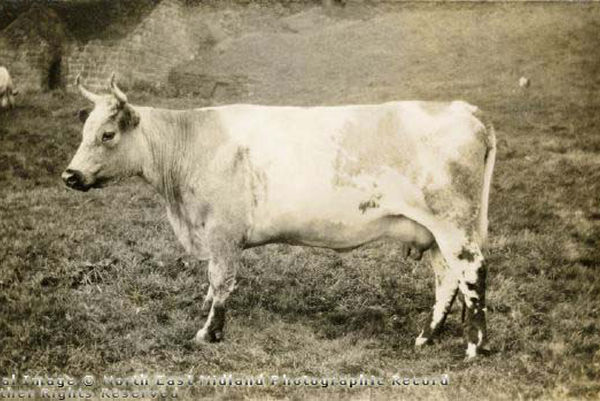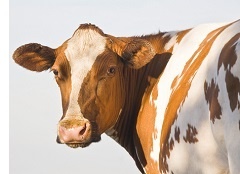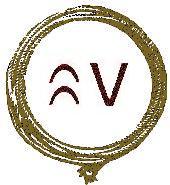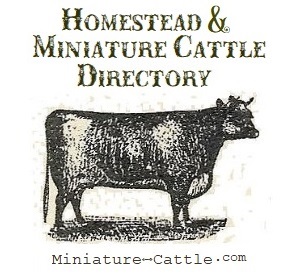Cows Milk:
A1/A2
and
Lactoferrin (whey protein that fights Covid-19)
Milk is one of nature's most perfect foods, due to its balanced combination of essential vitamins, minerals, proteins, healthy fats and milk sugars. And it is fairly well established that when clean cow's milk is raw and from healthy 100% grass-fed cows, its enzymes and probiotics also aid digestion and the effective absorption of nutrients.
 Cows Milk Basic Makeup:
Cows Milk Basic Makeup:
• 85% water
• 4.6 % lactose (milk sugar)
• 3.7 % triacylglycerols (milk fat)
• 2.8% proteins
• 0.54% minerals and 3.36% miscellaneous
Cows milk contains 2 kinds of proteins: Whey proteins and casein proteins (the caseins make up the majority).
Whey proteins make up about 20% of the total protein in cows milk.(5) Most of the whey proteins have been demonstrated(8) to effectively prevent viral infection.
• Alpha-lactalbumin (ALA) protein makes up about 5% of the total protein milk.
• Beta-lactoglobulin (ß-lg) is the major whey protein gene in cows milk (BLG does not occur in human breast milk). It occurs in a number of genetic variants, but the most prevalent bovine variants are BLG A and BLG B. The A variant is associated with higher milk yield and higher whey protein content. The B variant is associated with increased casein and fat content and is favorable for cheese production.
• Lactoferrin protein makes up about 1-2% of the whey protein in cows milk. First isolated in 1960 from both human and bovine milk, Lactoferrin has demonstrated the ability to block viral entry and also inhibit viral cell-to-cell spread. (7) Lactoferrin in cows milk fights human rotavirus, herpes simplex virus 1, herpes simplex virus 2, Hepatitis B virus, Hepatitis C virus, Hepatitis G virus, Respiratory syncytial virus, Influenza virus (H3N2, H1N1 and H5N1), Human cytomegalovirus, Hantavirus, Vesicular stomatitis virus, Human papilloma virus, Adenovirus, Poliovirus, Enterovirus (71, echovirus 6), Severe acute respiratory syndrome coronavirus, Echovirus, and even Feline herpes virus 1, Feline calicivirus, and Canine herpes virus. Other whey proteins in cows milk, fight even more viruses.(8)
![]()
A1 & A2 ßeta-Casein in Cows Milk
Casein proteins make up about 80% of the total protein in cows milk.
• Alpha-casein
• Kappa-casein - The 2 most common Kappa-casein variants are A and B. The A variant and AA genotype are associated with higher milk production. The B variant and BB genotype are associated with increased milk protein and casein content, and better cheese yield.
• Beta-casein (A2)
The 2 most common Beta-casein variants in cows milk are A1 and A2. The A1-beta casein is in general, a more inflammatory casein. The A2/A2 genotype is also considered to have positive effects on human health.
There are 2 groups of amino acid variants in the Beta (ß)-casein protein in cow's milk; group A1 and group A2:

A1 group variants: (His67) are A1, B, C, F and G.
A2 group variants: (Pro67) are A2, A3, H1, H2, I, J, K and L.
There is evidence that A2 milk is easier to digest for some people. Some say that lactose-intolerant people can drink A2 milk with less problems. "Breeders interested in developing dairy or dual purpose herds of cattle for human health benefits can use a simple DNA test to determine a cow's beta casein (A1 or A2 group) type."(1)
Lactose intolerance is not the same thing as milk intolerance. Cow's milk protein allergy (CMPA) is an immune-mediated allergic response to naturally-occurring milk proteins, either or both casein and whey. People who are allergic to milk are still going to be allergic to A2 milk.
According to the growing A2 commercial industry (not wholly objective, mind you), BCM-7 in A1 milk is what causes problems. It is an exogenous opioid (not found in the human body) that interacts with the human digestive system, internal organs, and brainstem. While no direct causal relationships have been demonstrated between BCM-7 and these diseases due to a wide range of contributing factors for each illness, BCM-7 could be linked to type 1 diabetes, heart disease, autism, and other serious non-communicable diseases.(2)
History: Humans, goats and most other mammals produce only A2 milk. Originally all cow milk was A2. However, a genetic mutation that is believed to have occurred about 8000 years ago, in Friesian cattle ancestry, changed the ßeta-casein they produced. The gene encoding beta-casein was switched from proline to histidine. The original (wild type) ßeta-casien is A2. The mutated ßeta-casein is A1.
The mutation in the beta casein gene eventually led to 12 genetic variants, of which A1 and A2 are most common. The mutation was passed on to many other breeds, principally because Holsteins were used to genetically improve the milk production of other breeds. Slowly, the A1 ßeta-casein variant grew in many breeds. The A1 ßeta-casein mutation is not present in the milk of pure Asian and African origin breeds of cattle. Dairy herds in much of Asia, Africa, and part of Southern Europe remain naturally high in A2 milk.
The A1 version of the protein is more common among cattle in the Western world.(4) The proportion of A1 ßeta-casein is higher in the black and white European dairy breeds compared to the red (yellow and brown) breeds. The Holstein carries A1 and A2 alleles usually in equal proportion, with some sources reporting A1 averaging as high as 65% of the population. The Brown Swiss, Ayrshire and British Shorthorns typically average 35-50% A1. Jersey cows and other southern European breeds probably have about 33% A1 and 66% A2 genetics. Guernsey cows generally have about 10% A1 and 90% A2 genetics. Most European breeds have both variants, but beef cattle breeds generally test a lower incidence of A1 than dairy cattle. (3)
If a cow carries only one copy of the A1 mutation, she produces A1 milk. Therefore, whether a cow has one or both copies of A1, her milk is classified A1. A1/A2 cows have a 50% chance of producing an A2 calf, when mated with a homozygous A2 bull.
![]()
sources:
Homestead & Miniature Cattle Directory of DNA Tests for Cattle
(1) Beta Casein – A2 Genotyping cow's milk. UC Davis Veterinary Genetics Lab
(2) July 2019: A2 milk clinical trial with children was published in the Journal of Pediatric Gastroenterology and Nutrition (JPGN). The paper provides strong evidence from a clinical trial with pre-school children in China that A1 beta-casein relative to A2 beta-casein has negative effects on both digestion and cognitive performance. The evidence is sufficiently strong that those who have argued until now that A2 milk is just a marketing gimmick will find it increasingly difficult to sustain that argument. This could have a major implications for the mainstream dairy industry which continues to downplay the A1 versus A2 issue.
(3) (Ng-Kwai-Hang and Grosclaude 2002), Keith Woodford Professor of Farm Management and Agribusiness Lincoln University New Zealand.
(4) nodpa.com, prepared by Marguerita B. Cattell, DVM, MS, Diplomate, ABVP-Dairy & Arden J. Nelson, DVM, Diplomate, ABVP-Dairy for Windsor Dairy, LLC, Windsor Dairy, LLC owners: Dr. Meg Cattell & Dr. Arden Nelson.
(5) A2 Milk Facts. Gonca Pasin, RD, Ph.D., executive director at the California Dairy Research Foundation (CDRF), based in Davis, CA, a nonprofit research management organization that leads and delivers research and science-based programs to support a more innovative and sustainable California and U.S. dairy industry.
(6) sigmaaldrich.com
(7) clinic.medlab.co
(8) Milk Derived Peptides with Immune Stimulating Antiviral Properties By Haiyan Sun and Håvard Jenssen Submitted: November 9th 2011. Reviewed: May 24th 2012Published: September 12th 2012 DOI: 10.5772/50158 (Open access peer-reviewed) ~ "The whey protein lactoferrin, and pepsin derived peptide fragments of this protein (e.g. lactoferricin) have been studied extensively for its antiviral properties, i.e. its direct interaction with the virus particle, interaction with cellular receptors on the target cells, and lately more complex antiviral mechanisms involving stimulation and regulation of the immune system have been discovered."
![]()
Homestead & Miniature Cattle Directory
![]()
Homestead Cattle Association
![]()
Homestead & Miniature Cattle Registry
Heritage Cattle Registry
![]()
 |
©online since 2013 Bucking V Outfit, LLC. enterprises, est. circa 1990 Maricopa County, Arizona |
![]()

